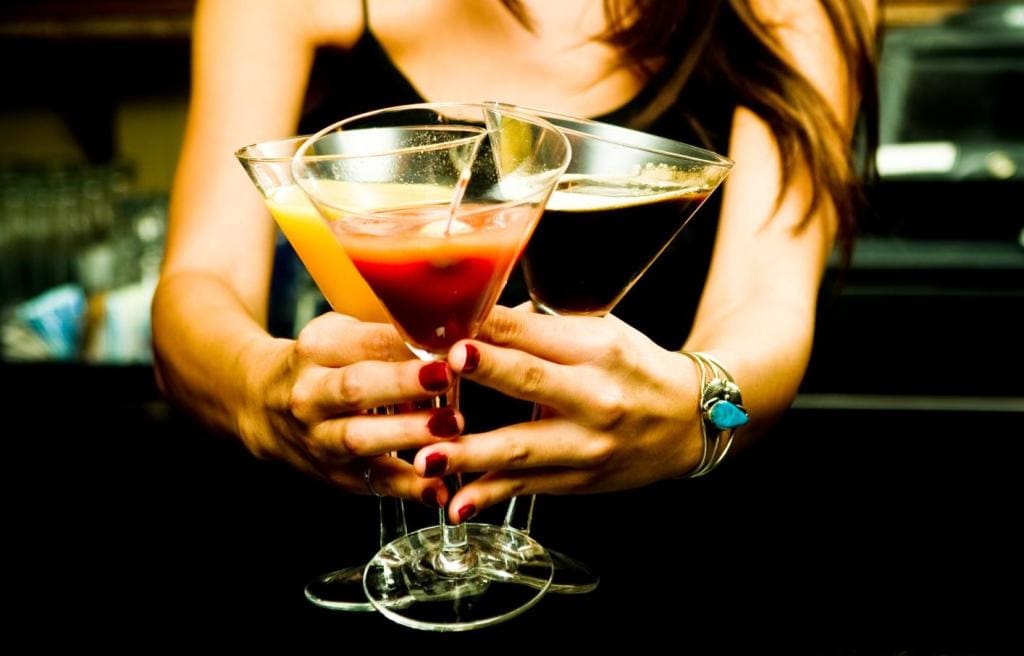 When James Bond approaches the bar and demands a martini “shaken, not stirred,” you probably wonder, what’s the difference? Or better yet, why does it even matter? Well, it does, and so do these other rules of cocktail-making procedure. You don’t have to be a bartender to fix up a flawless cocktail, because with these drink-making tips, you’ll be able to perfectly practice the tricks of the bartending trade.
When James Bond approaches the bar and demands a martini “shaken, not stirred,” you probably wonder, what’s the difference? Or better yet, why does it even matter? Well, it does, and so do these other rules of cocktail-making procedure. You don’t have to be a bartender to fix up a flawless cocktail, because with these drink-making tips, you’ll be able to perfectly practice the tricks of the bartending trade.
1. Know the difference between “strong,” “weak,” “sweet,” and “sour”
There are four basic ways to explain what’s happening in a cocktail, and they are all fairly different. Strong refers to the main alcohol in your drink; weak refers to the lesser alcohol part of the drink, such as a liqueur. Sour represents a drink’s citrus notes, while sweet means there is sugar or syrup involved.
2. Only stir drinks with spirits
If your cocktail only contains spirits, you’ll want to stir the drink until you get a crystal clear look. Do this with drinks such as negronis, manhattans and martinis.
3. Shake your drink if it contains citrus, eggs or dairy
In order to properly mix in the non-alcoholic ingredients, any drink with citrus, eggs, dairy or cream liqueurs must be shaken. This includes drinks such as the classic white Russian.
4. Muddle gently
When muddling fruits or herbs don’t press down too hard or else you’ll just end up releasing bitter, unwanted chemicals into your drink. Simply apple light pressure and twist!
5. “Dry shake” when working with egg whites
To make the egg white bind to the alcohol (and to create a thicker foam), you’ll want to “dry shake” your cocktail. To do so, just shake the drink for 15 or so seconds, add ice (if the recipe calls for it), and shake again.
6. When to double strain
If your cocktail contains berries or herbs with small seeds, you’ll want to double strain your drink in order to remove all the unwanted bits. Otherwise, you’ll have small, annoying bits floating around in your cocktail.
7. Weigh sugar, don’t measure
Considering sugar and water have different densities, measuring sugar by volume doesn’t work out very well. If you end up making this mistake, your cocktail could end up far too sweet, taking away from any of the natural flavors.
8. Let lime and lemon juice sit
The flavors of citrus juices vary as they age. If you seal and refrigerate your fresh lemon and lime juice for at least four hours before you use it, you’ll be sipping on the best sour cocktail ever created.
9. Always use freshly squeezed orange juice
Unlike lemon and lime juice, orange juice should be used right away. Once an orange is squeezed, there’s an enzyme that makes the juice start to go bitter, so don’t wait too long or else your drink will taste far from fresh.
10. Blended drinks require more sugar
Blending a drink dilutes the taste into all the ice. To keep your cocktail from being watery and bland, add some extra sugar to add some extra flavor.
11. Don’t overdo the whipped cream
When it comes to coffee drinks, don’t pile on the whipped cream—you’re not a toddler. Whipped cream is considered a garnish, so too much of it will only take away from your drink’s taste.
12. Keep your ice dry
As soon as you make a cocktail with ice cubes, serve/sip it. If you don’t, the drink will only become more watery with time, and no one wants that.
13. Long drinks take crushed or shaved ice
Long drinks are usually less strong, daytime cocktails. When making one of these (i.e. caipirinhas), use crushed or shaved ice.
14. Begin with the least expensive ingredient
When making a drink, start with the cheapest of your ingredients and work your way up. However, always add ice last (to avoid diluting your cocktail).
15. Substitutes for simple syrup
Sugar and lime juice makes for a great substitute for simple syrup, as it won’t alter your cocktail’s flavor too much. Plus, this alternative is much healthier.
16. Save the “good stuff”
Unless you have no other choice, avoid using high-end ingredients in cocktails because, chances are, it’ll just be a waste. If you’re really trying to impress someone, go for gold, otherwise we suggest sticking to the cheaper stuff.
17. Know Your Audience
This may be obvious, but you must understand the cocktail preferences of the people you’re serving—there’s nothing more important than an attentive host.


Great tips! We’re going to share with our BevMo! fans. Thanks!